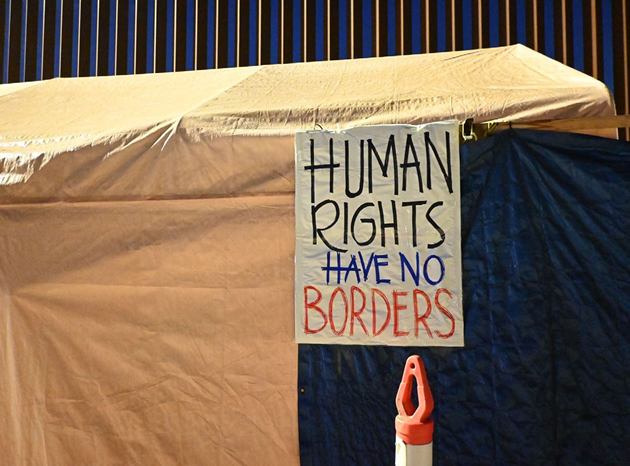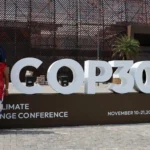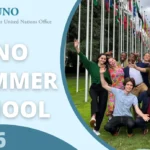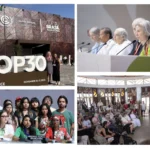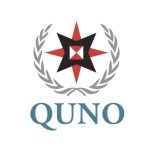As governments, civil society, and experts convene in Geneva for the second part of the fifth session of the Intergovernmental Negotiating Committee to develop an international legally binding instrument on plastic pollution, including in the marine environment (INC-5.2), QUNO is on the ground, engaging with delegations, experts, and stakeholders to advocate for a robust and ambitious global plastics treaty, reflecting our deep commitment to equity, sustainability, and stewardship.
Following the adoption of UNEA resolution (5/14) in March 2022, QUNO’s Sustainable and Just Economic Systems (SJES) programme has been supporting treaty negotiations by emphasizing subsidy reform and financial alignment as critical leverage points for systemic change in global plastics governance.
At INC-5.2, our engagement focuses on:
- Facilitating informed dialogue on phasing out subsidies and financial incentives that contribute to the increased production and reliance of plastic polymers, drawing from evidence developed through our Plastic Money initiative with Eunomia Research & Consulting.
- Encouraging discussions around aligning financial flows with objectives of reducing plastic pollution and supporting a just transition, consistent with the principles established by UNEA Resolution 5/14.
- Sharing research to support the strengthening of treaty provisions aimed at enhancing transparency and accountability in subsidy reporting, aligned with international environmental and human rights commitments.
- Supporting dialogue on trade-related cooperation that advances waste hierarchy priorities, reduces plastic production, and promotes sustainability.
- Encouraging inclusive governance practices, ensuring meaningful participation of affected communities, youth, and Indigenous Peoples in decision-making processes.
- QUNO is proud to be part of UNEP’s Multifaith Working Group on Pollution and also warmly acknowledges the tireless commitment and contributions of UNEP’s Children and Youth Major Group in championing ambitious and effective treaty outcomes, which align to our priorities.
We look forward to connecting, collaborating, and collectively advancing toward a just and sustainable future free from plastic pollution.
Meet the Team on the Ground:
- Our SJES programme team, led by Andrés Naranjo and Ronald Steenblik, will be present throughout INC-5.2. For meetings, inquiries, or collaboration, please contact Andrés or Ronald directly via email.
Upcoming Engagements:
- 10 August 2025 – Plastic Money Phase 3 Launch: Stay tuned for the release of our Plastic Money Phase 3 briefing and public launch, which will provide refined estimates of investment-related subsidies, and new insights to inform treaty negotiations and implementation. We are grateful to our partner, Eunomia Research & Consulting, for their collaboration throughout the Plastic Money initiative.
Publications and Resources:
- Plastic Money reports (Phase 1 & 2)
- Just released: Plastic Money Phase 3 Brief
External Resources:
- Perpetual Plastic ©Von Wong: Explore this impactful photographic exhibition highlighting the urgency of addressing plastic pollution.
- Official INC Website: Access the official INC-5.2 webpage for up-to-date information, official documents, Chair’s Text, and live plenary webcasts. While the official agenda is forthcoming, the scenario note from the INC Chair provides insights into the structure and priorities of INC 5.2.
- Geneva Environment Network – Plastics Treaty INC-5.2 “Offsite Buzz”: Visit this resource hub for a compilation of events and activities—ranging from expert conferences and workshops to artistic and cultural exhibitions—taking place alongside the official negotiations in Geneva.
- IISD’s Earth Negotiations Bulletin (ENB): Follow daily summaries of INC-5.2 negotiations on the Earth Negotiations Bulletin platform, provided by IISD’s independent reporting team specializing in United Nations environment and development discussions.
- Dialogue on Plastic Pollution at the WTO: Consult the WTO DPP page for official materials, member-driven initiatives, and trade-related discussions on reducing plastic pollution and promoting environmentally sustainable plastic trade.
Image: © Samuel Schalch / Greenpeace

![GP0SU6DUQ_PressMedia(1250px)_0[1]](https://www.quno.org/wp-content/uploads/2025/10/GP0SU6DUQ_PressMedia201250px_01.jpg)

